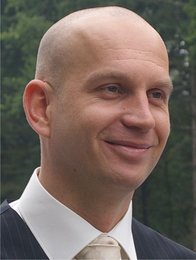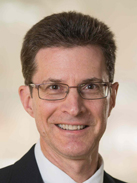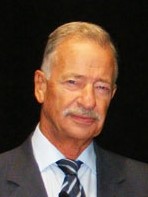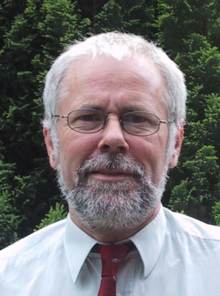Keynote 1:
Resilience Against Sensor Deception Attacks on Cyber-Physical Control Systems
Prof. Stéphane Lafortune (IEEE Fellow)
University of Michigan, USA
Abstract
We study the security of Cyber-Physical Systems (CPS) where sensors are subject to cyber-attacks. Specifically, we consider CPS control systems where sensor readings may be compromised by a malicious attacker intent on causing damage to the system. We study this problem at the supervisory layer of the control system, using discrete event systems techniques. We assume that the attacker can edit the outputs from the sensors of the system before they reach the supervisory controller.
In the first step, we consider the problem from the viewpoint of the attacker, where the goal is to use edit attacks on the sensor readings to steer the system to an unsafe state without being detected. In the second step, we consider defense mechanisms and formulate the problem of synthesizing a supervisor that is robust against a large class of edit attacks.
We present solution methodologies to these two problems that blend algorithmic techniques from games on automata with imperfect information with results from supervisory control theory of partially observed discrete event systems. We discuss the scalability of these algorithms in the context of a case study.
[Joint work with: Rômulo Meira-Góes, Eunsuk Kang, Raymond Kwong, and Hervé Marchand]
Biography of Prof. Stéphane Lafortune
Stéphane Lafortune was born in Montréal, Québec, Canada. He received the B.Eng degree from École Polytechnique de Montréal in 1980, the M.Eng degree from McGill University in 1982, and the Ph.D degree from the University of California at Berkeley in 1986, all in electrical engineering. Since September 1986, he has been with the University of Michigan, Ann Arbor, where he is a Professor of Electrical Engineering and Computer Science. In March 2018, he was appointed as the N. Harris McClamroch Collegiate Professor of Electrical Engineering and Computer Science. Lafortune is a Fellow of the IEEE (1999) and of IFAC (2017). He received the Presidential Young Investigator Award from the National Science Foundation in 1990 and the Axelby Outstanding Paper Award from the Control Systems Society of the IEEE in 1994 (for a paper co-authored with S.-L. Chung and F. Lin) and in 2001 (for a paper co-authored with G. Barrett). Lafortune's research interests are in discrete event systems and include multiple problem domains: modeling, diagnosis, control, optimization, and applications to computer and software systems. He is the lead developer of the software package UMDES and co-developer of DESUMA with L. Ricker. He co-authored, with C. Cassandras, the textbook Introduction to Discrete Event Systems (Second Edition, Springer, 2008). Lafortune is Editor-in-Chief of the Journal of Discrete Event Dynamic Systems: Theory and Applications.
Keynote 2:
Event-triggered communication in networked control systems
Prof. Maurice Heemels (IEEE Fellow)
Eindhoven University of Technology, The Netherlands
Abstract
Advanced communication technologies are deployed in many applications leading to an increasingly networked and wireless world. In the context of networked control systems, this raises many new challenging questions, especially when the communication (or other) resources for control are limited. To efficiently use the available resources it is desirable to limit the communication between (distributed) controllers, sensors and actuators to instances when the system really needs attention. In classical time-triggered control schemes, the communication and control actions are performed periodically in time (irrespective of the state of the system) rather than when the system actually needs attention. Therefore, it is of interest to consider novel control and communication paradigms that are (more) resource-aware. In this talk we discuss so-called event-triggered schemes in which control and communication actions are triggered by well-designed events involving the system's state, output or any other locally available information. We willdiscuss the main ideas and design techniques (guaranteeing stability, performance and robustness), recent advances and open problemsin the field of event-triggered control for networked control systems. Applications of event-triggered communication in the area of multi-agent consensus and cooperative adaptive cruise control (CACC) strategies for vehicle platooning, including experimental results, will be presented.
Biography of Prof. Maurice Heemels
 Maurice Heemels received the M.Sc. degree in mathematics and the Ph.D. degree in control theory (both summa cum laude) from the Eindhoven University of Technology (TU/e), the Netherlands, in 1995 and 1999, respectively. From 2000 to 2004, he was with the Electrical Engineering Department, TU/e and from 2004 to 2006 with the Embedded Systems Institute (ESI). Since 2006, he has been with the Department of Mechanical Engineering, TU/e, where he is currently a Full Professor. He held visiting professor positions at the Swiss Federal Institute of Technology (ETH), Switzerland (2001) and at the University of California at Santa Barbara (2008). In 2004, he worked also at the company Oce, the Netherlands. His current research interests include hybrid and cyber-physical systems, networked and event-triggered control systems and constrained systems including model predictive control. Maurice served/s on the editorial boards of Automatica, Nonlinear Analysis: Hybrid Systems, Annual Reviews in Control, and IEEE Transactions on Automatic Control. He was a recipient of a personal VICI grant awarded by STW (Dutch Technology Foundation, NWO/TTW) and is the current chair of the IFAC Technical Committee on Networked Systems. He is the founding father of a bi-annual PhD school on multi-disciplinary research topics such as hybrid, networked and cyber-physical systems educating over 600 PhD students worldwide since 2003. He was IPC (co-)chair of IFAC ADHS'12, ECC'13, IFAC NECSYS'13, IFAC ADHS'18, and ECC’21. He is a Fellow of the IEEE. See www.heemels.tue.nl for more information.
Maurice Heemels received the M.Sc. degree in mathematics and the Ph.D. degree in control theory (both summa cum laude) from the Eindhoven University of Technology (TU/e), the Netherlands, in 1995 and 1999, respectively. From 2000 to 2004, he was with the Electrical Engineering Department, TU/e and from 2004 to 2006 with the Embedded Systems Institute (ESI). Since 2006, he has been with the Department of Mechanical Engineering, TU/e, where he is currently a Full Professor. He held visiting professor positions at the Swiss Federal Institute of Technology (ETH), Switzerland (2001) and at the University of California at Santa Barbara (2008). In 2004, he worked also at the company Oce, the Netherlands. His current research interests include hybrid and cyber-physical systems, networked and event-triggered control systems and constrained systems including model predictive control. Maurice served/s on the editorial boards of Automatica, Nonlinear Analysis: Hybrid Systems, Annual Reviews in Control, and IEEE Transactions on Automatic Control. He was a recipient of a personal VICI grant awarded by STW (Dutch Technology Foundation, NWO/TTW) and is the current chair of the IFAC Technical Committee on Networked Systems. He is the founding father of a bi-annual PhD school on multi-disciplinary research topics such as hybrid, networked and cyber-physical systems educating over 600 PhD students worldwide since 2003. He was IPC (co-)chair of IFAC ADHS'12, ECC'13, IFAC NECSYS'13, IFAC ADHS'18, and ECC’21. He is a Fellow of the IEEE. See www.heemels.tue.nl for more information.
Keynote 3:
Location-Routing Problems: Characteristics and Metaheuristic Algorithms
Prof. Paolo Toth
University of Bologna, Italy
Abstract
We will consider the family of optimization problems including both “location” and “routing” aspects. After a description of the main characteristics of the “routing problems” and of the “location problems”, two problems will be addressed in more detail:the Capacitated Location-Routing Problem (CLRP) and the Generalized Traveling Salesman Problem (GTSP).
In the Capacitated Location-Routing Problem (CLRP), we are given a set of available depots (each depot is located at a node of a network, and has an associate cost, a capacity and a set of identical vehicles stationed at the depot) and a set of customers (each customer is located at a node of the network and has a positive demand). All the demands of the customers must be satisfied through a set of routes (each route starts from a depot, visits a subset of customers whose global demand must not exceed the capacity of the associated vehicle, and returns to the starting depot). In addition, each customer must be visited by exactly one route, and the global demand of the customers visited by the vehicles associated with a depot must not exceed the capacity of the depot. The aim of the CLRP is to determine the subset of depots to be opened, the customers to be assigned to each opendepot, and the routes to be performed to satisfy the demands of thecustomers. The objective is to minimize the sum of the global cost of the open depots, of the global cost of the used vehicles, and of the global traveling costassociated with the performed routes. The CLRP is NP-hard, since it generalizes two well-known NP-hard problems: the Capacitated Facility Location Problem (CFLP) and the Multi Depot Vehicle Routing Problem(MDVRP).
The Generalized Traveling Salesman Problem (GTSP) is a generalization of the well-known Traveling Salesman Problem (TSP) in which the set of nodes is partitioned into clusters. In the GTSP the aim is to find a minimum-cost simple cycle visiting exactly one node for each cluster. The GTSP is NP-hard, since it generalizes the TSP.
The most effective metaheuristic algorithms proposed for the solution of the CLRPand of the GTSP will be described, and experimentally compared on the benchmark instances from theliterature, by taking into account both thequality of the solutions found andthe CPU times required to obtain the solutions.
Biography of Prof. Paolo Toth
Paolo Toth is "Professor Emeritus" of “Operations Research” at DEI: (Department of Electrical and Information Engineering “Guglielmo Marconi”), University of Bologna, where he was Full Professor from 1983 to 2011. His research interests include Operations Research and Mathematical Programming methodologies and, in particular, the design and implementation of effective exact and heuristic algorithms for Combinatorial Optimization and Graph Theory problems, and their application to real-world Transportation, Logistics, Loading, Routing, Crew Management, Railway Optimization problems.
He is author of more than 180 papers published in international journals and of the book "Knapsack Problems: Algorithms and Computer Implementations" (coauthor S. Martello; J. Wiley, 1990). He is also Co-editor of the books "The Vehicle Routing Problem" (SIAM Monographs on Discrete Mathematics and Applications, 2002) and "Vehicle Routing: Problems, Methods and Applications” (MOS-SIAM Series on Optimization, 2014). He was President of EURO (Association of the European Operational Research Societies) for the period 1995-1996, and President of IFORS (International Federation of the Operational Research Societies) for the period 2001-2003.
He received several international awards, among which: the "EURO Gold Medal" (the highest distinction within Operations Research in Europe) in 1998; the "Robert Herman Lifetime Achievement Award in Transportation Science" (from INFORMS) in 2005; the "INFORMS Fellowship" in 2016. In May 2003, the University of Montreal conferred him a "Doctorate honoris causa" in Operational Research.
Keynote 4:
Probabilistic Graphical Models: On Learning, Fusion, and Revision
Prof. Rudolf Kruse (IEEE Fellow)
Otto-von-Guericke University of Magdeburg, Germany
Abstract
Probabilistic Graphical Models are of high relevance for complex industrial applications. The Markov network approach is one of their most prominent representatives and an important tool to decompose uncertain knowledge in high dimensional domains. But also relational and possibilistic decompositions turn out to be useful to make reasoning in such domains feasible. Compared to conditioning a decomposable model on given evidence, the learning of the structure of the model from data as well as the fusion of several decomposable models is much more complicated. The important belief change operation revision has been almost entirely disregarded in the past, although the problem of inconsistencies is of utmost relevance for real world applications. In this talk these problems are addressed by presenting successful complex industrial applications.
Biography of Biography of Prof. Paolo Toth
Rudolf Kruse is Professor at the Faculty of Computer Science in the Otto-von-Guericke University of Magdeburg in Germany. He obtained his Ph.D. and his Habilitation in Mathematics from the Technical University of Braunschweig in 1980 and 1984 respectively. Following a stay at the Fraunhofer Gesellschaft, he joined the Technical University of Braunschweig as a professor of computer science in 1986. Since 1996 he is a professor in the Computational Intelligence Group in Magdeburg. He has coauthored 15 monographs and 25 books as well as more than 350 peer-refereed scientific publications in various areas with 16000 citations. He is associate editor of several scientific journals. Rudolf Kruse is Fellow of the International Fuzzy Systems Association (IFSA), Fellow of the European Association for Artificial Intelligence (EURAI/ECCAI ), and Fellow of the Institute of Electrical and Electronics Engineers (IEEE). His group is successful in various industrial applications in cooperation with companies such as Volkswagen, SAP, Daimler, and British Telecom. His current main research interests include data science and intelligent systems.



